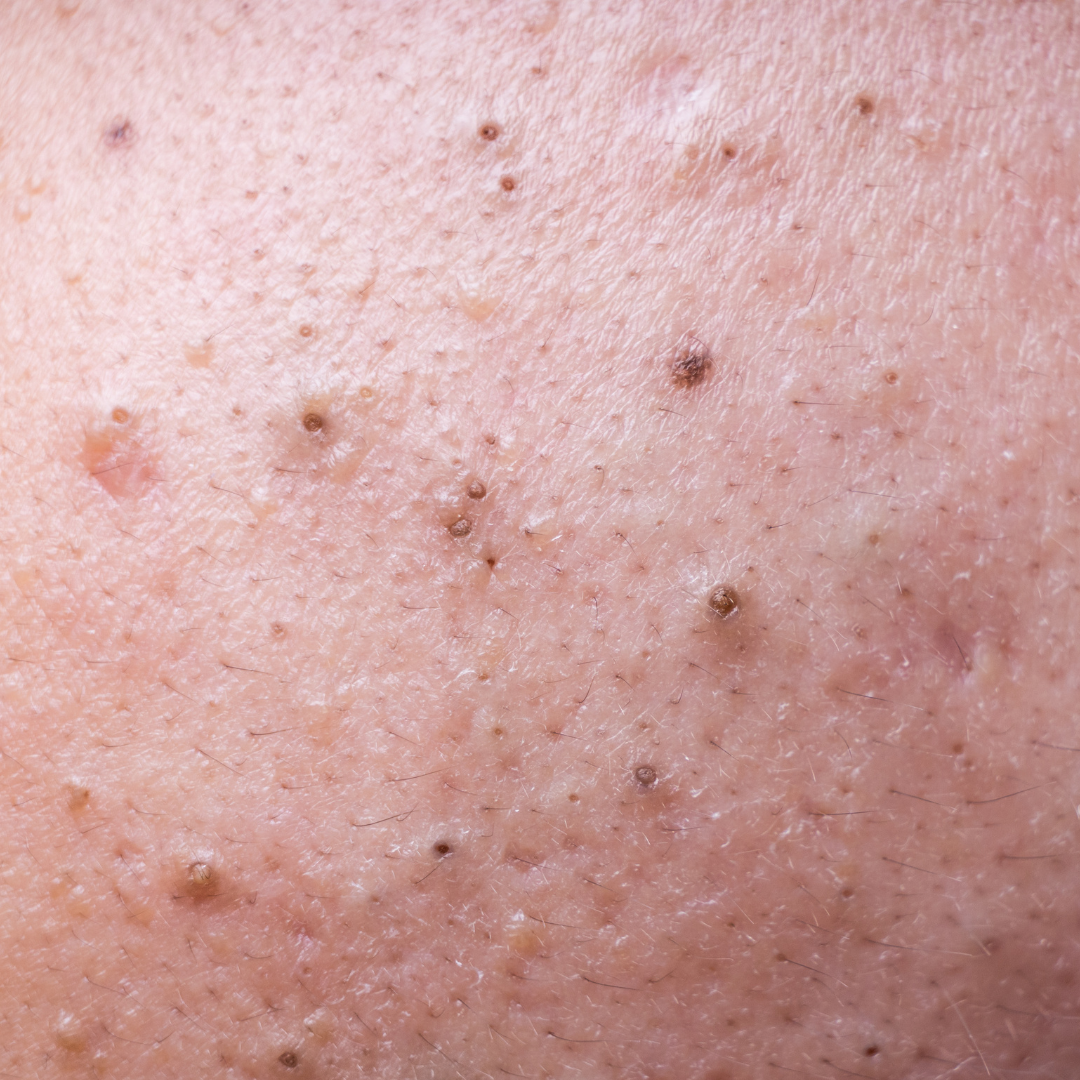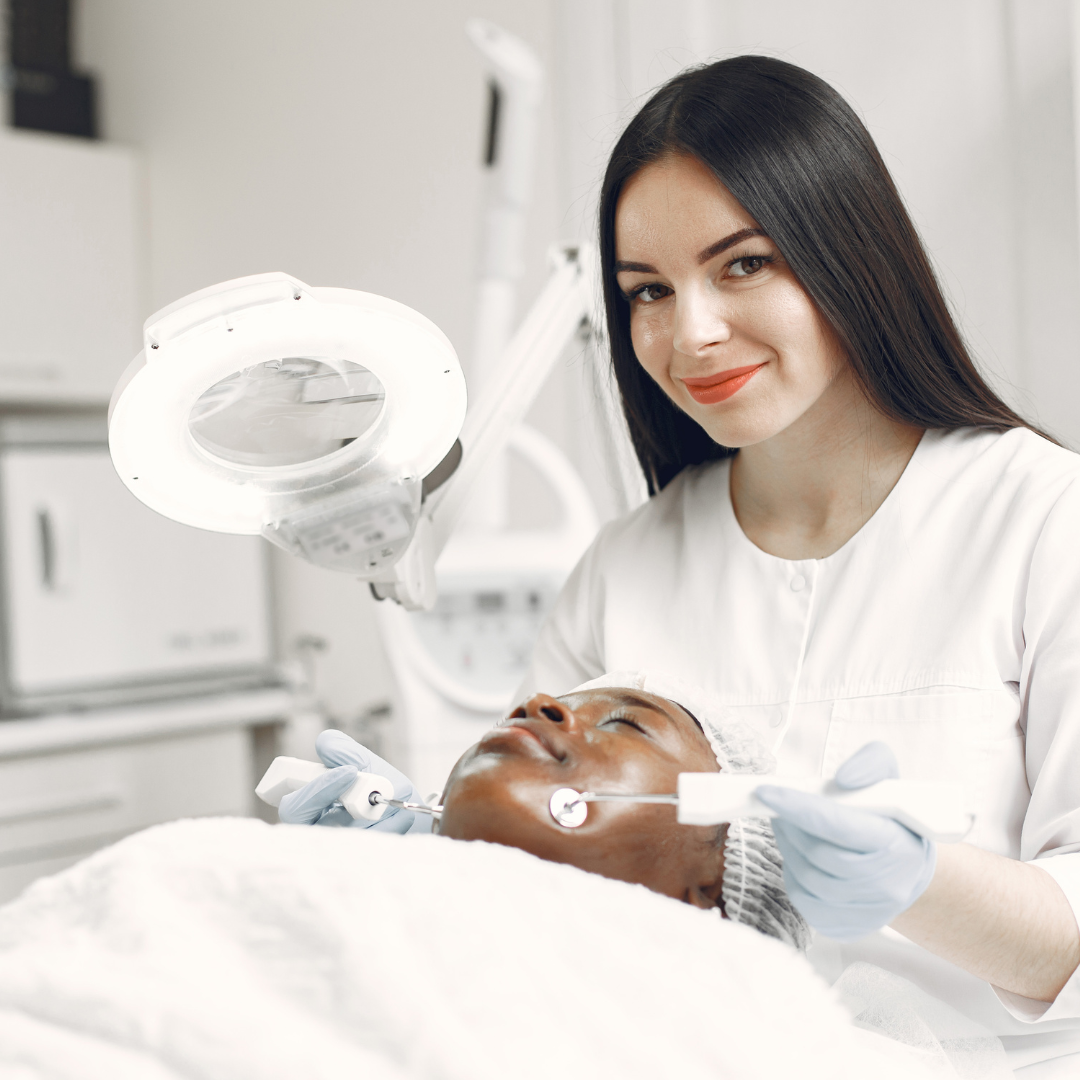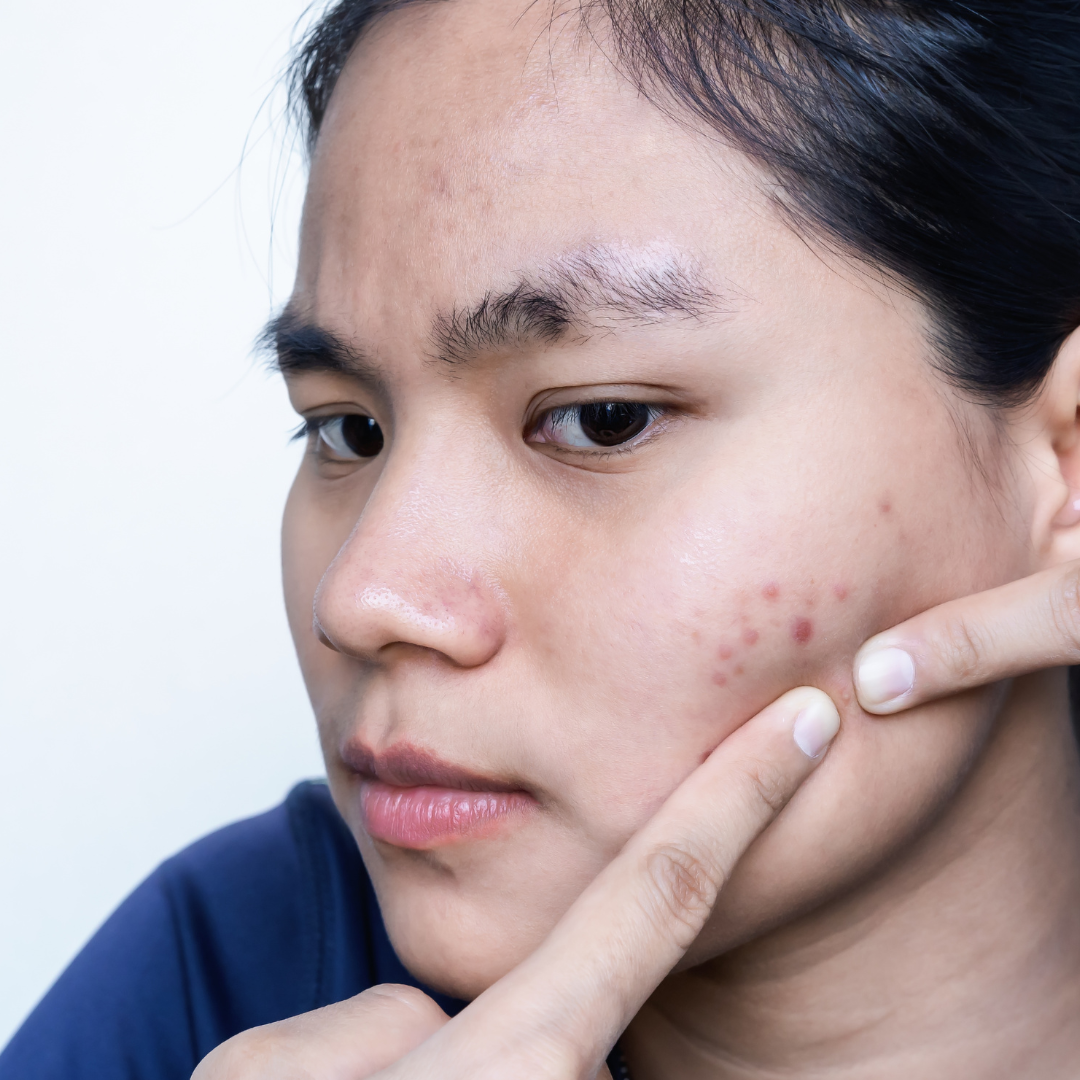Say Goodbye to Blackheads and Whiteheads: Effective Treatment Strategies Revealed
When it comes to skincare, understanding the various forms of acne is essential for effective treatment and prevention. Whiteheads and blackheads are two common forms of acne vulgaris that can appear on the skin. While they might seem similar at first glance, there are distinct differences between these two types of blemishes. In this article, we will explore the characteristics, causes, and acne treatment options for blackheads and whiteheads, helping you to differentiate between them and develop a skincare routine that addresses these concerns effectively.
What are whiteheads?
Whiteheads, also known as closed comedones, are small, flesh-colored bumps that typically appear on the skin. They occur when hair follicles become clogged with oil, dead skin cells, and bacteria. Unlike blackheads, whiteheads have a thin layer of skin covering the pore opening, which prevents the contents from oxidizing and turning dark. Essentially they are clogged pores and often considered to be as a form moderate acne.
Whiteheads Are Closed Comedones
Whiteheads are flesh and white colored, sometimes with a little pink due to bacterial infections in the skin.
What Causes Whiteheads?
When the sebaceous glands produce an excessive amount of oil, it can mix with dead skin cells and block the opening of the hair follicle. This creates an ideal environment for bacteria to thrive, leading to inflammation and the formation of a closed comedone, or stubborn whiteheads. Factors such as hormonal changes, genetics, and certain skincare products can also contribute to the development of these acne blemishes. Proper acne treatments using salicylic acid and benzoyl peroxide are essential in preventing and managing whiteheads effectively.
What are blackheads?
Blackheads, or open comedones, are small bumps that appear on the skin's surface. They are characterized by their dark color, which is caused by the oxidation of melanin (skin pigment) when exposed to air. Blackheads form when the hair follicles become clogged with oil, dead skin cells, and bacteria, and the pore remains open. They will look like dark spots on the skin and will rarely have red bumps around the dark spot itself, like whiteheads do. Blackheads are often not considered to be severe forms of acne, however there are some exceptions.
Blackheads Are Open Comedones
Blackheads are exposed to oxygen and react with the melanin in the skin to look black or dark in appearance.
What Causes Blackheads?
Blackheads are primarily caused by a combination of excess oil, dead skin cells, and bacteria that clog the hair follicles. When the sebaceous glands produce too much oil, it can mix with dead skin cells and accumulate within the pores. Unlike whiteheads, the pore remains open, allowing the trapped debris to come into contact with air. As a result, the melanin in the skin oxidizes and turns dark, giving blackheads their characteristic appearance. Hormonal fluctuations, improper skincare habits, and certain medications can contribute to the development of blackheads. Regular cleansing, exfoliation, and the use of oil-controlling products like salicylic acid can help prevent and minimize the occurrence of blackheads.
Key differences between whiteheads and blackheads
The main differences between these forms of acne vulgaris can be summarized as follows:
Appearance: Whiteheads are closed comedones and appear as flesh-colored bumps, while blackheads are open comedones with a dark, oxidized surface.
Clogged pores: Whiteheads have a thin layer of skin covering the pore opening, while blackheads have open pores.
Oxidation: Whiteheads do not undergo oxidation and, therefore, do not darken, whereas blackheads darken due to the exposure of melanin to air.
Extractions: Whiteheads can be more challenging to extract because of the skin covering the pore, while blackheads are relatively easier to remove. An acne specialist is excellent at removing both of these.
Don’t Let Dead Skin Cells Buildup
Regular and gentle exfoliation helps with the build-up and allows the skin to breathe.
Skincare routine for managing whiteheads and blackheads
Developing a skincare routine that targets whiteheads and blackheads can help keep your skin clear and blemish-free. Consider the following steps:
Cleanse: Use a non pore-clogging cleanser to wash your face twice a day. Finding a mild salicylic acid and glycolic acid cleanser is a great start to treating acne.
Exfoliate: Incorporate exfoliation into your routine 2-3 times a week to remove dead skin cells and unclog pores. Using a face mask that is specific to treating mild acne is important. Not only can it reduce breakouts it is also a great way to also prevent whiteheads and blackheads from forming.
Moisturize: Choose a non-comedogenic moisturizer to keep your skin hydrated without clogging the pores. Always choose oil-free unless you know if certain oils don't cause your acne vulgaris to worsen.
Spot treatments: Instead of using harsh acne medication to treat whiteheads and blackheads, you can start with more gentle products that have benzoyl peroxide or salicylic acid for a quick reduction.
Sun protection: Use an oil free broad-spectrum sunscreen daily to protect your skin from harmful UV rays.
Use An Oil-Free Sunscreen
Many people who have whiteheads and blackheads are sensitive to oil based products. When protecting your skin from the sun choose oil-free as a safe option.
Prevention and treatment options for whiteheads
To prevent and treat whiteheads effectively, consider the following strategies:
Facial washes: Use a gentle cleanser twice a day to remove excess oil, dirt, and dead skin cells. Our top favorite for managing this type of acne is the Elizabeth Steffen Alpha / Beta Cleanser.
Exfoliate regularly: Incorporate exfoliation into your skincare routine to remove dead skin cells and unclog pores. Exfoliation can be in the form of a cleanser formulated with alpha and beta hydroxy acids or in weekly masks or light peels you can use at home.
Avoid pore-clogging products: Opt for non-comedogenic skincare and makeup products that do not block pores. As an acne specialists, I’ve developed some starter kits with a self-guided acne coaching program that will have you on a journey to clear skin.
Use topical treatments: Apply over-the-counter creams or gels containing ingredients like salicylic acid or benzoyl peroxide to help control oil production and reduce inflammation.
Seek professional help: In severe cases, consult a licensed esthetician who specializes in acne who can provide tailored treatments, at-home product recommendations or professional extractions.
You Don’t Have To Do It Alone
Hard to clear acne is what we do, both at our Vanilla Sugar Spa and in our online options. Our step-by-step guided approach get’s you clear and also teaches you how to stay clear.
When to consult an esthetician or acne specialist?
While many cases of whiteheads and blackheads can be managed with over-the-counter treatments and a proper skincare routine, it is essential to consult an esthetician or acne specialist in the following situations:
Severe acne: If your whiteheads or blackheads are persistent, widespread, or accompanied by severe inflammation, it may require professional treatment.
Scarring: If your blemishes leave behind scars or you notice changes in your skin texture, an acne specialist can provide appropriate solutions.
Failed self-treatment: If your attempts to manage whiteheads and blackheads at home have been unsuccessful, an esthetician can offer guidance and stronger treatments. We have an in-house acne clearing program and also an online acne coaching programs to choose from.
How To Choose A Professional Acne Specialist?
If you have acne and are looking for someone to help you, not all skincare professionals are the same. Many have specialties. Look for one that has proven results with case studies or before and after photos on their websites and social media accounts.
Common misconceptions about whiteheads and blackheads
There are several misconceptions regarding whiteheads and blackheads. Let's debunk a few:
Only teenagers get whiteheads and blackheads: While hormonal changes during puberty make teenagers more prone to acne, adults can also experience whiteheads and blackheads.
Popping whiteheads and blackheads is the best way to get rid of them: Popping blemishes can lead to further inflammation, scarring, and the spread of bacteria. It is best to leave extractions to acne specialists and licensed estheticians.
Blackheads are caused by dirt: The dark color of blackheads is not due to dirt but rather the oxidation of melanin when exposed to air.
Popping Pimples Is Not Healthy
We all know that popping pimples can feel satisfying. The reality is that more damage is often happening that includes scaring and spreading bacteria that can cause more breakouts on the face.
Lifestyle factors that can contribute to whiteheads and blackheads
Certain lifestyle factors can influence the development of whiteheads and blackheads. Consider the following:
Poor skincare routine: Inadequate cleansing, lack of exfoliation, and failure to remove makeup can contribute to pore blockage.
Diet: High consumption of processed foods, sugary snacks, and dairy products may worsen acne symptoms for some individuals.
Stress: Chronic stress can disrupt hormonal balance and increase oil production, leading to the formation of whiteheads and blackheads.
Hygiene habits: Frequent touching of the face, using dirty cellphones, or not washing pillowcases regularly can introduce bacteria and dirt to the skin.
Understanding the relationship between hormones and whiteheads/blackheads
Hormonal fluctuations can play a significant role in the development of whiteheads and blackheads. Here's how hormones can impact the skin:
Androgens: Increased levels of androgens, such as testosterone, can stimulate the sebaceous glands to produce more oil, leading to clogged pores and acne breakouts.
Menstrual cycle: Hormonal changes during the menstrual cycle can cause oil production to spike, making women more susceptible to whiteheads and blackheads during certain times of the month.
Polycystic ovary syndrome (PCOS): PCOS is a hormonal disorder that can cause hormonal imbalances, leading to an increased risk of acne.
Conclusion
In conclusion, whiteheads and blackheads are common types of acne that can affect individuals of all ages. Understanding the differences between these blemishes, their causes, and effective treatment options is crucial for maintaining clear and healthy skin. By adopting a proper skincare routine, incorporating preventive measures, and seeking professional help when needed, you can effectively manage whiteheads and blackheads and achieve a clearer complexion.
FAQs
Are whiteheads and blackheads contagious? No, whiteheads and blackheads are not contagious. They are a result of internal factors like oil production and pore blockage.
Can stress worsen whiteheads and blackheads? Yes, chronic stress can disrupt hormonal balance, leading to increased oil production and exacerbation of whiteheads and blackheads.
How long does it take for whiteheads and blackheads to disappear? The timeline for whiteheads and blackheads to disappear varies for each individual. With proper treatment and skincare, they can typically resolve within a few weeks to a few months.
Can diet affect the occurrence of whiteheads and blackheads? While diet alone may not be the sole cause of whiteheads and blackheads, certain dietary factors can influence acne symptoms in some individuals. It's important to maintain a balanced diet and be mindful of potential triggers.
Can whiteheads and blackheads cause scarring? Whiteheads and blackheads, when left untreated or improperly handled, can potentially lead to scarring. It's crucial to avoid picking or squeezing blemishes to minimize the risk of scarring.
If you are interested in our in-spa Acne Coaching Program, give us a call and let us get started. If you are not in the area of our spa, then our Online Acne Coaching Program will be just right for you.
About The Author
Elizabeth has been a licensed Esthetician since 2005 and has worked with thousands of clients over the years, helping them to feel comfortable and confident in their own skin. She is the author of Filter Free & Flawless: An Estheticians Journey To Clearing Acne. She was a finalist in The Skin Games Acne Clearing Category, a global competition of innovative strategies in all things esthetics. Her team of estheticians in her spa are highly trained & certified in many area of esthetics that include our award winning Acne Clearing Program, Beautiful You Repair Series & the Brazilian Wax Treatment.
Elizabeth Steffen, Master Esthetician
Content Copyright © 2023 Vanilla Sugar Face & Body
PERMISSION TO REPRINT: You may use any items from this article in your print, blog, magazine or electronic newsletter. But in order to do so, you must include the following paragraph, including a link to www.vanillasugarfaceandbody.com
"Information courtesy of www.vanillasugarfaceandbody.com a website with skin care advice, treatment and product recommendations based on skin types from skin care expert Elizabeth Steffen"








